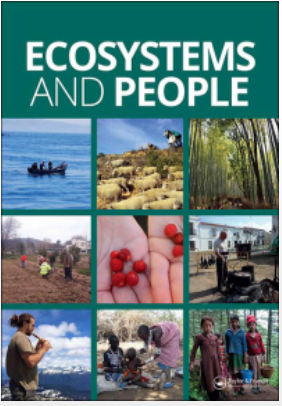推进生态系统服务包的比较评价与综合研究
IF 3.7
Q1 Agricultural and Biological Sciences
引用次数: 13
摘要
社会-生态相互作用已被证明产生相互关联和重复出现的生态系统服务集,也称为生态系统服务包。考虑到捆绑包概念的潜在效用,以及最近的兴趣激增,反思这个概念、它当前的用途和未来的潜力是及时的。基于我们的生态系统服务包经验、专业知识和生态系统服务包分析,我们发现了推进生态系统服务包概念的效用和深化其未来影响的关键因素。本文考察了生态系统服务束概念的不同概念;2)展示使用捆绑包方法的一系列好处;3)探索生态系统服务包研究的关键问题,包括指标、规模、驱动因素和生态系统服务之间的关系;4)通过促进生态系统服务捆绑研究的比较,概述未来的优先事项。本文章由计算机程序翻译,如有差异,请以英文原文为准。
Advancing research on ecosystem service bundles for comparative assessments and synthesis
ABSTRACT Social-ecological interactions have been shown to generate interrelated and reoccurring sets of ecosystem services, also known as ecosystem service bundles. Given the potential utility of the bundles concept, along with the recent surge in interest it is timely to reflect on the concept, its current use and potential for the future. Based on our ecosystem service bundle experience, expertise, and ecosystem service bundle analyses, we have found critical elements for advancing the utility of ecosystem service bundle concept and deepening its impact in the future. In this paper we 1) examine the different conceptualizations of the ecosystem service bundle concept; 2) show the range of benefits of using a bundles approach; 3) explore key issues for improving research on ecosystem service bundles, including indicators, scale, and drivers and relationships between ecosystem services; and 4) outline priorities for the future by facilitating comparisons of ecosystem service bundle research.
求助全文
通过发布文献求助,成功后即可免费获取论文全文。
去求助
来源期刊

Ecosystems and People
Agricultural and Biological Sciences-Ecology, Evolution, Behavior and Systematics
CiteScore
7.80
自引率
11.30%
发文量
40
审稿时长
42 weeks
期刊介绍:
Ecosystems and People is an interdisciplinary journal that addresses how biodiversity and ecosystems underpin human quality of life, and how societal activities and preferences drive changes in ecosystems. Research published in Ecosystems and People addresses human-nature relationships and social-ecological systems in a broad sense. This embraces research on biodiversity, ecosystem services, their contributions to quality of life, implications for equity and justice, and the diverse and rich ways in which people relate to nature.
 求助内容:
求助内容: 应助结果提醒方式:
应助结果提醒方式:


